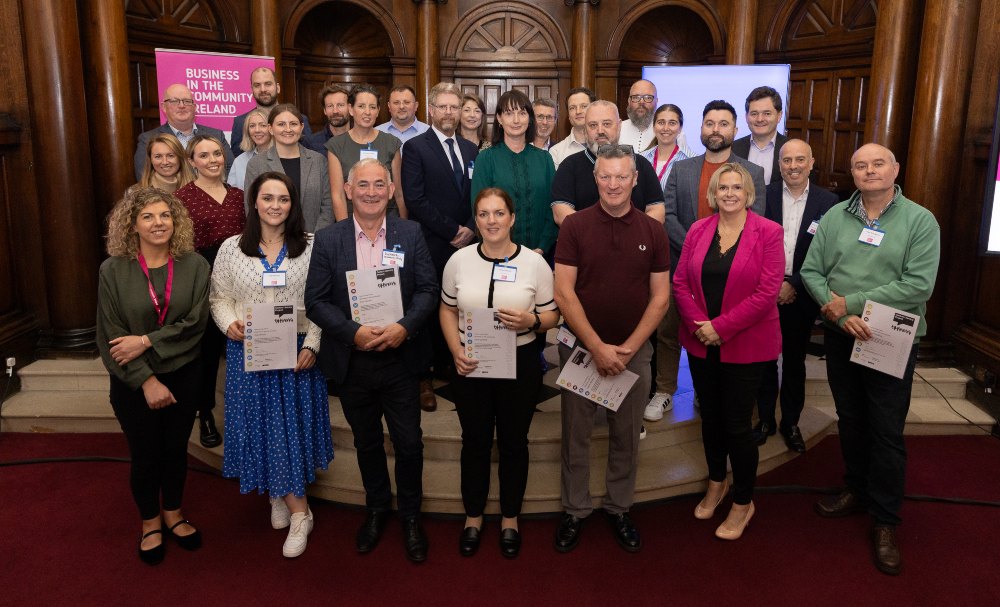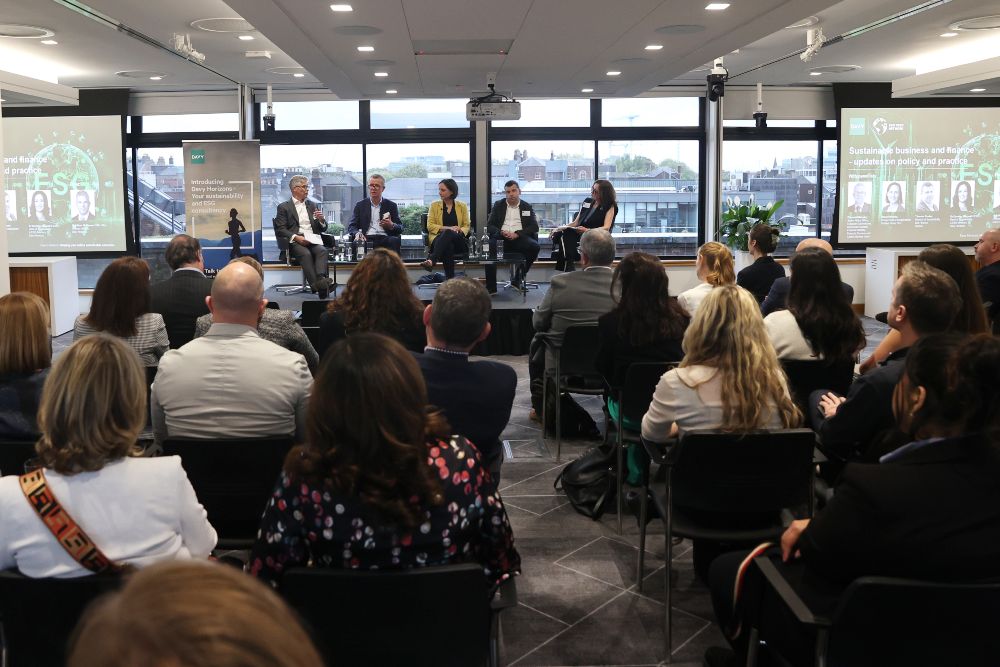Podcast Ep 237: We talk to Business in the Community CEO Tomás Sercovich about a new business pact to drive action on Net Zero and nature positive.
Three in five Irish consumers are more likely to support businesses committed to climate and nature. That’s according to Business in the Community Ireland CEO Tomás Sercovich.
To help businesses navigate their sustainability challenges, in recent months Business in the Community in Ireland (BITCI) developed a new Pact that will help firms address the interconnected climate and nature crises.
“It is challenging, but then the damage on our planet and our nature is demanding action”
It revealed a new collective campaign Accelerate, The Business Pact for Climate and Nature. This new Pact urges action to address the interconnected climate and nature crises.
Within Accelerate, The Business Pact for Climate and Nature, businesses are asked to set an ambitious net-zero target by 2050 if not earlier (approved by the Science Based Targets Initiative (SBTi)) and to develop a Climate Transition Plan to guide and track implementation.
BITCI recently revealed the first nine accelerate signatories — Bidvest Noonan, Bus Éireann, Deloitte, Equinix, Gather & Gather, John Paul Construction, Mitie, SSE and Vhi — who each represent diverse sectors vital to the energy transition.
This Pact is building on the success of BITCI’s Low Carbon Pledge which commenced in 2018 and ends this year. The Low Carbon Pledge required signatories to set science-based targets by the end of 2024. In partnership with PwC, an annual report was produced to monitor progress.
The report found in total:
- 62 large companies across multiple sectors stayed the course over the lifetime of the pledge;
- Of these companies 81% have now fully set science-based targets, are waiting approval or have formally made the commitment to the SBTi process.
The Pact comes on the heels of the recent graduation by 22 SME businesses from across Ireland from the SME Decarbonisation Pilot, which was a collaboration between Business in the Community Ireland, Bank of Ireland, Musgrave Group and SSE Airtricity.
The programme engaged a selection of their supply chain SMEs, encouraging a deeper understanding of climate change, carbon reporting, and supply chain decarbonisation.
What your customers want
“We’re heading towards a 2.7 degree increase, a warming of our of our planet, so that that tells us that action is fundamental, it’s critical”
Speaking with Sercovich on the ThinkBusiness Podcast, he explained that it is no surprise consumers demand more action and transparency.
He explained that the new pact is novel in that it is novel by driving forward a new phase of change through a holistic approach across business operations and ensuring a company’s targets are achieved through detailed and specific Climate Transition Plans.
Being a cross sectoral network, he said that BITCI is uniquely placed to facilitate a community of practice and build a Centre of Excellence to share challenges, solutions and best practices among the businesses participating.
I put it to Sercovich that businesses of all sizes are heading into a maelstrom of regulation. If small businesses and SMEs think that the Corporate Sustainability Reporting Directive (CSRD), for example, will only impact larger companies they are wrong. Reporting requirements will filter down through the entire supply chain and smaller firms will have to march in step if they want to keep the business.
He pointed out that while the regulations will seem arduous, the bigger picture is what is happening to our world. Businesses, he says will have no choice but to act, whether from a moral viewpoint, a regulatory viewpoint or from the point of view that it is what their customer will expect of them.
“If we just step back from the regulation for a minute and look at a last year, which was the hottest on record. Most likely this year will follow, if not exceed, this. Extreme weather events are being seen all over the world, all throughout the year. Here in Ireland, we have seen the floods in the southwest of the of the country, and that continues to go on and on and on. If we look at the nature, which is the other dimension, we always need to bear in mind it is also under threat. So that, to me, is something that we need to always keep in perspective.
“We know that the Paris Agreement is a legally binding agreement for all nations to avoid warming to go above 1.5 degrees. And what science tells us today is that we’re heading towards a 2.7 degree increase, a warming of our of our planet, so that that tells us that action is fundamental, it’s critical.
“The second piece, before I get into regulation, is, what are the dynamics in the marketplace? So even before regulation, we were seeing movements, whereas investors were demanding more transparency and accountability from businesses. So there’s a number of voluntary initiatives, some which are very well known, such as the Carbon Disclosure Project, which is led by investors, or the Task Force on Climate Related Financial Disclosures, which is another voluntary initiative.
“So the appetite was going to towards a more accountability and more awareness of business on what they were doing to manage their emissions and their pathway to decarbonise without a doubt, and that keeps on coming.
“There a risk because of the political tides that we might be going backwards on this. However, we were seeing trends in the marketplace, and we know from talking to small companies that they’re being asked those questions in bids or when they’re making pitches to larger businesses, what are your sustainability credentials? Do you have an environmental policy? Have you measured your carbon footprint? Do you understand the emissions associated with those products that you supply in third countries. So that that’s another reality, that that is there.
“And we can talk more about whether it’s the pressure of pension funds or niche consumers that are demanding more of this, and obviously there’s the big revolution that’s coming with the regulation.
“And you are right. I would say that at the moment, companies are very much in understanding the regulation, setting up the processes that will ensure compliance. And it will take us a few years until this is all settled, and what happens the dust settles?”
No doubt questions will arise about what was all of the regulation about and what it achieves. Sercovich says it’s about a bigger picture.
“It is the transformation of your business model. And I think that is the key question that, unfortunately, companies should be doing today, and not just when they have completed the compliance exercise. So it is all of those multiple pressures are that coming towards business at the same time, and it is, and let’s be honest, it is challenging, but then the damage on our planet and our nature is demanding action.”
Main image at top: Enda McDonagh, Managing Partner, PWC, Meaghan Carmody, Sustainability Advisor, Bernadette Phelan, Head of Advisory Services and Tomás Sercovich, CEO, Business in the Community Ireland, at the launch of Accelerate, The Business Pact for Climate and Nature. Photo: Jason Clarke
-
Bank of Ireland is welcoming new customers every day – funding investments, working capital and expansions across multiple sectors. To learn more, click here
-
Listen to the ThinkBusiness Podcast for business insights and inspiration. All episodes are here. You can also listen to the Podcast on:
-
Spotify
-
SoundCloud
-
Apple





